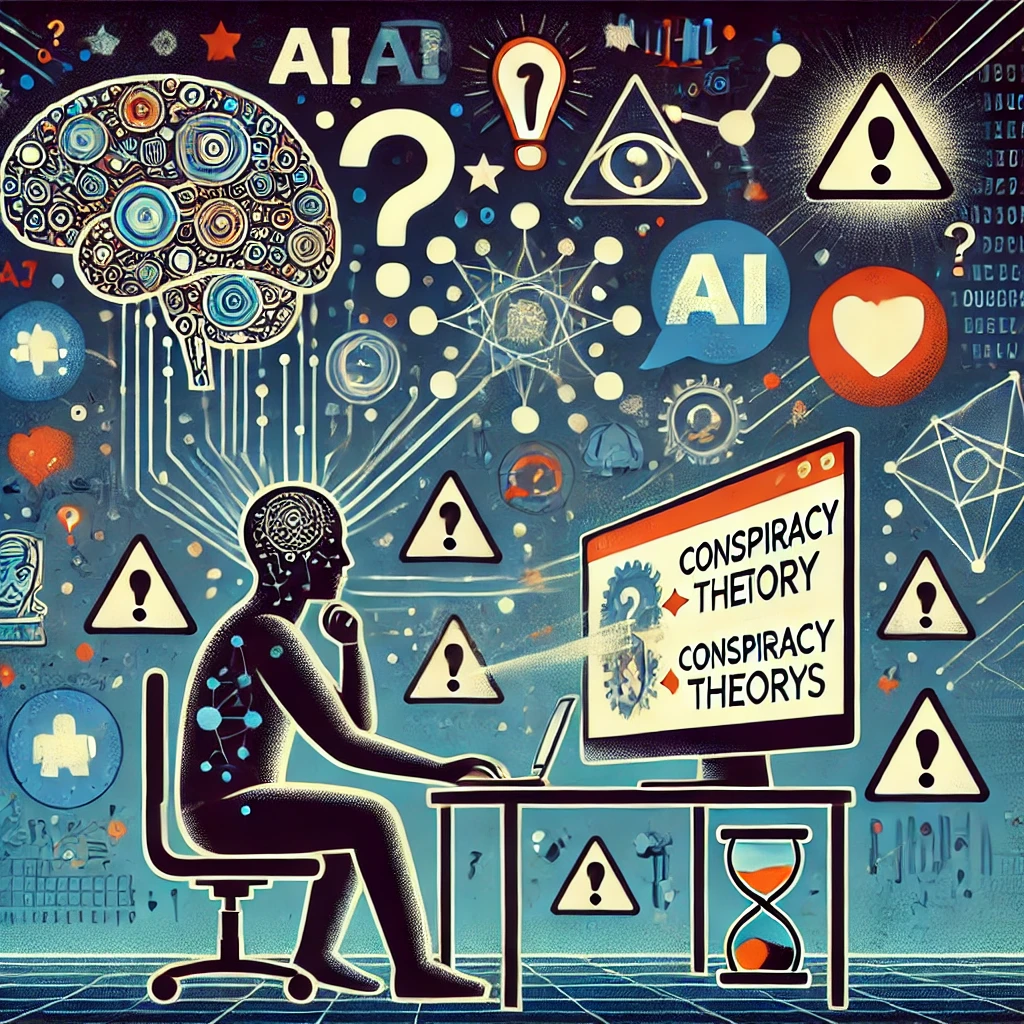A recent study has found that artificial intelligence (AI) can influence people’s beliefs in conspiracy theories. Researchers discovered that AI-powered tools, such as chatbots and recommendation systems, can both reinforce and challenge conspiracy beliefs depending on how they are programmed and used.
The study shows that when AI algorithms promote content that aligns with users’ existing beliefs, it can create echo chambers that reinforce conspiracy theories. For instance, social media platforms that use AI to suggest videos or articles can unintentionally push users toward more extreme or misleading content, amplifying their belief in conspiracy theories.
Conversely, the study also found that AI can be a powerful tool to combat misinformation. By designing AI systems to provide balanced information and fact-checking, users can be exposed to a broader range of perspectives. When confronted with credible information that counters false narratives, users were more likely to reconsider their beliefs and become less convinced of conspiracy theories.
The researchers emphasize the importance of using AI responsibly to promote accurate information and healthy public discourse. As AI continues to play a significant role in shaping what people see and read online, there is a growing need for transparency and ethical guidelines in how these systems are designed and deployed.
Overall, the study highlights AI’s dual potential to both spread and reduce conspiracy theories, depending on how it is utilized. This finding calls for careful consideration in the development of AI technologies to ensure they foster a more informed and balanced society.


